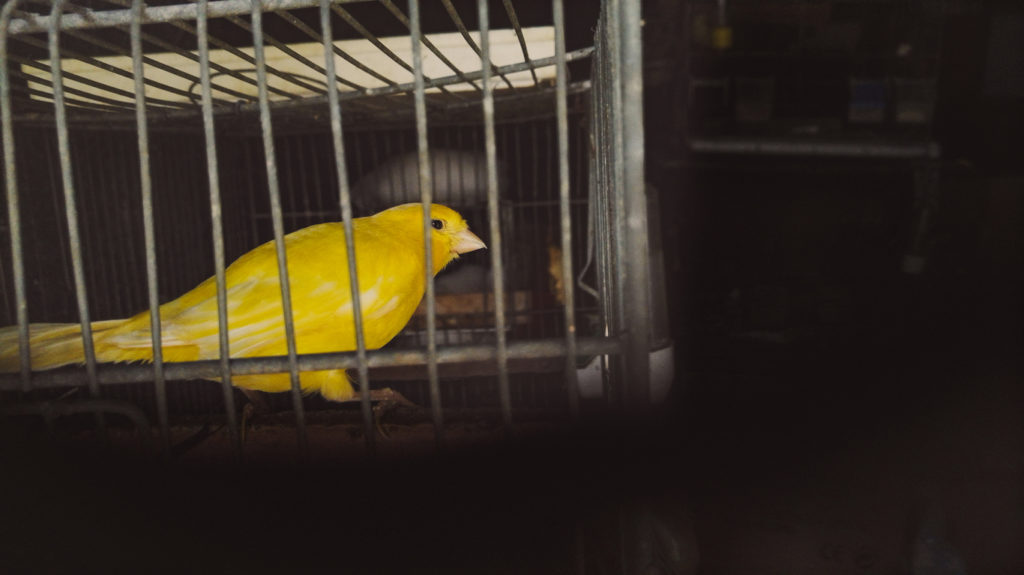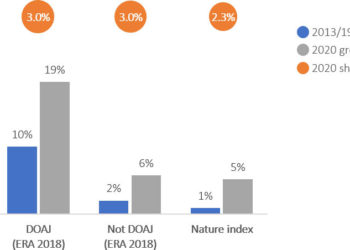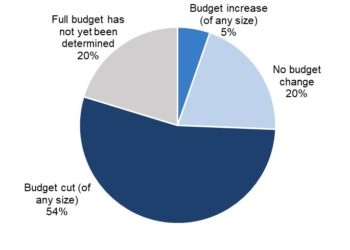We’ve recently been completely immersed in a huge project exploring the effects of COVID-19 on research and scholarly communication. We did two massive surveys (10.000+ researchers and 600+ librarians) and reviewed over 100 announcements, reports, posts, etc., from funders, institutions, librarians, and researchers.

When starting the project, our assumptions were pretty much as follows:
- Universities will have seen their income badly hit, while also having had to invest in making facilities and processes COVID compliant. Libraries (like all communal spaces) will have had to close their doors and institutions may decide never to reopen them, because we will have suddenly, forcibly gone beyond the tipping point in the transition to e-only remote access to library content and services. There will be an unprecedented level of cancellations / renegotiations as libraries cope with seismic budget cuts.
- The pandemic will have completely disrupted researchers’ normal workload and workflows. They will be so busy reinventing how they research and teach, and coping with, e.g., homeschooling, that they won’t have time for writing, publishing, reviewing, etc. And the effects will be long lasting because even if and when things return to any kind of norm, there will have been such disruption to their research projects that it will be a while before they have anything to publish.
- The effect of the pandemic on so many countries’ economies will be devastating. Budgets will be cut across the board, include research funding, meaning competition for funding will increase, and funders will introduce even more stringent evaluation processes and requirements. Plus, having seen extraordinary levels of open science contribute to the pace at which COVID research was able to advance, they will ride the wave of public interest and expectation, and introduce / strengthen policies around open data and open publishing.
Not all of this has been borne out by the project’s findings.
- Library budgets are being hit, badly (our findings broadly align with those reported by Ithaka in November – a key difference is that the Ithaka study focused on the US, whereas ours was global, and there are variations, with some countries hit much worse than others). Libraries are having to reinvent their services, staff are having to take on new responsibilities, and with capacity being stretched (as well as budgets), tolerance of complicated or egregious pricing models is lower than ever. So while librarians are keen to protect whatever content they can in order to continue providing the best possible service to their patrons / users (we gained some useful insights about the types of content most at risk, and the mechanisms by which cancellations will be selected), there is frustration about pricing / licensing models that seem to be “cashing in” on the rapid e-transition necessitated by the pandemic – particularly in relation to e-books and e-textbooks. One interesting tidbit that emerged from our study was the comment that “decisions are being taken much more quickly – what would once have had to go through a series of committees is now being decided and actioned in a single discussion”. Cuts + frustration + pace = get your pricing wrong, and you won’t get a second chance.
- Researchers have been publishing more, not less. Christos Petrou has shared some great data here in the Scholarly Kitchen so we won’t regurgitate the stats here, but will hypothesize that because researchers across many fields were unable to carry out their work as normal during 2020, they were able to spend more time writing and publishing. So although we were wrong about publishing capacity / publication counts falling in 2020, might it be logical still to assume that the spike will be followed by a lag, when (a) researchers return to ‘normal’ working patterns and (b) we wait for the research that was stalled to progress to the point where there is something to be published? Our instinct here is that we’ll see a leveling out – publication counts increased in 2020, but it may not mean more research is being or will be published overall, just that some publications have been accelerated.
- Funders seemed by and large to be holding steady. In our review of announcements, responses and statements from funders around the world, we found little indication that funding levels, policies, requirements, or processes were being radically adjusted. This contrasted with the perceptions of researchers in our survey, who were highly concerned that the pandemic would have a negative effect on funding.

It seemed therefore that one conclusion / recommendation should be to “do what we can to assuage researchers’ fears about funding cuts, because they seem unfounded.” But, instinct made us wonder if perhaps researchers were the canaries in the coal mine, that they sensed a storm brewing. Perhaps (as is often the case with this kind of study) one of most useful findings of our study would turn out to lie in the gap between perception and reality (‘perceptions’ in this case being the researchers’ survey responses, ‘reality’ being the facts around research funding available at that time). To some extent, our instinct was right, at least in terms of developments in the UK in the past few days. During the last couple of months, we have digested huge amounts of information published by the UK government; we’ve read transcripts of parliamentary sessions, announcements from funding councils, spending policy review papers, relevant sections of the Chancellor’s budget, and multiple commentaries across a range of media. (We did this across a number of countries, not just the UK. Yes, it’s been an intense couple of months!) In synthesizing all of this for the report, the summary was that the UK had re-confirmed its commitment to its previous research budget, and would not be making substantial cuts, though we flagged risks to projects funded from the aid budget, which was (controversially) being cut. The pandemic, of course, coincided with Brexit, so we also noted a risk that the government’s commitment to continuing contributions to the EU’s research program (money that had previously been part of the UK’s overall EU membership fee, and thus did not come out of the research budget) may be funded from the R&D budget, thus shrinking the pot for domestic funding.
And this, sadly, appears to be coming to pass. There has been no announcement yet, but “reports” are circulating, to the extent that Prof Julia Buckingham, the president of Universities UK (UUK) has written to the Prime Minister to express concerns that the government has “not made funding available to support the UK’s association to Horizon Europe” (the EU research program) and that “it will amount to an effective cut in excess of £1bn”. This equates to about 3% of the UK government’s current research spend, or (Buckingham’s calculation) “18,000 full-time academic research posts”. Our researcher respondents were right to be concerned. The UK scenario is of course uniquely turbulent, because of the joyous combination of Brexit + COVID, and our findings from other countries are unlikely to evolve so rapidly (a Chinese librarian responded simply, and encouragingly, “There are little effects of the pandemic on funding in China now.”) But it’s a timely reminder of the importance of having a canary with us on this bumpy ride, to help sniff out what the future looks like even before there is anything to see.
(For more info about our project’s scope, findings and recommendations, see https://info.growkudos.com/brave-new-world-report).
Discussion
8 Thoughts on "How Has COVID-19 Affected Research Funding, Publishing and Library Budgets? Or, Finding the Truth in the Gap Between Perception and Reality"
When you talk about the impact on researchers, you make no differentiation between the impact on male and female researchers. Several studies have now been published which show that men may be publishing more, but women are definitely publishing less because, unfortunately, the burden of domestic labour and childcare still falls disproportionately on women. Also, a much higher proportion of single-parent families are headed by women, who are thus forced to sacrifice their own work when everybody is cooped up at home together.
Further, this is supposed to be a global survey, and yet no mention is made of the disparities between research outputs between poorer and richer countries. It seems obvious that those differences which existed before Covid will only have been exacerbated since. Perhaps you could elaborate on this?
Hi Gail, yes, I’ve barely scratched the surface above, in terms of the report’s full findings, both those from our own surveys, and the findings from secondary research.
In terms of the effect of the pandemic on publication levels by Male vs Female researchers, we referenced studies such as those by Squazzoni et al, Vincent-Lamarre et al, Andersen et al and Smith and Watchorn. Our survey findings showed that a higher proportion of Female respondents reported spending less / much less time than usual on publishing tasks, whereas Male respondents reported spending more time.
In terms of the global effects, there were some interesting findings – for example, when we asked people “To what extent, if any, do you think the pandemic could affect the
development of your career as a researcher?”, researchers in the UK / Europe and North America were more likely to say that it has negatively affected them, whereas proportionally more respondents in Africa and Asia say it has had a positive effect on their careers. That’s counter to what I might have assumed (like you, I would have thought existing disadvantages would have been exacerbated) and I think would bear further investigation. We did cover issues such as the digital divide in the secondary research, but not explicitly in the surveys.
Hi Charlie and Chris, thanks for the really helpful overview of your findings, and for highlighting the significant concerns over research funding in the UK at the moment. The scale of the cuts to ODA research funding have taken many people in the sector by surprise, with budgets reduced by 70% in many cases. The £1 billion ‘effective cut’ due to Horizon 2020 is in fact even more significant than your figures imply – it equates to 3% of total UK spend on R&D, most of which is incurred by businesses, but is closer to 10% of UK government R&D spending, much of which goes to universities.
In preprints, the spike is over, and the slump you expected has already started, so presumably that will show up in journals soon: https://quantixed.org/2021/03/20/the-rise-and-fall-impact-of-the-covid-19-pandemic-on-biorxiv-preprints/
Thanks for a really clear summary that even I could understand! My experience over the past year was also that short term funding remained steady. Within this, however, was a huge shift to topics justified as being related to COVID. Would be interesting to see how this has impacted on specific subject areas – or whether researchers have changed their approach / rhetoric to make topics fit into this heading.
Thanks, John! There is definitely a sense that people will be adjusting their research to fit changing priorities. Our two most relevant questions:
• “Thinking about your field, what is your sense of how research funders’ priorities, policies and processes have been affected by the pandemic?”. Responses (n=10,226) had “Funding priorities (range of research for which support is available)”coming joint top (or bottom?!) with 56% of respondents considering priorities to have been negatively affected.
• We also asked them to indicate the extent to which they agreed / disagreed with a set of statements, which included “The pandemic is likely to drive a change in the nature or focus of my research” and “I expect to do more applied research as a result of the pandemic”. 49% of respondents agreed or strongly agreed with the former, and 38% agreed or strongly agreed with the latter. Postgraduate respondents were more likely to agree and Established researchers were more likely to disagree. Respondents in the UK, Europe and the US were least likely to agree (one can hypothesize that they have steadier funding and less need to blow in the wind?)
It will be interesting to see whether these expectations bear out in due course.



